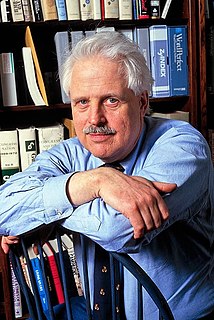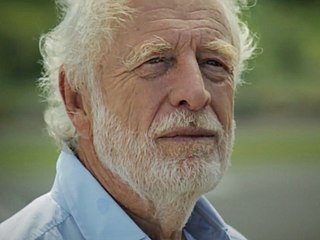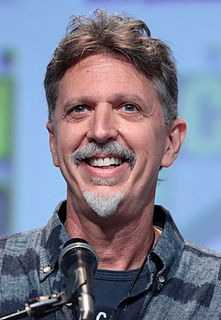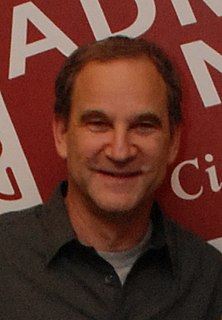A Quote by David Simon
On a practical level I'm a TV producer and storyteller who's gone about as long as you can go without achieving a mass audience.
Related Quotes
One of the things on a very practical level as an actor or actress is that when you do a play, you do the entire story every time you do it. You have eight shows a week. You have a rehearsal process of four to five to six weeks. And then once you're in performance, everybody else goes away and you're there with your fellow actors and the audience and the material and your life becomes about that. And you go through the story from the beginning to the end every time you do it and depending on how long you do it, that's where the craft comes in.
Working with Robert, Robert [Elswit] is a storyteller. He's not a cinematographer, he's a storyteller. And to me, that's the graduation I hope to get to in my profession. That I'm not just an actor, I'm a storyteller. And I think that takes a long time in, when you have one job on a movie set. Makeup artists, actor, whatever. To graduate from just that to storyteller.
Now, the relationship the storyteller has with the audience is a much higher quality relationship. You treat them with a lot more intelligence because the truth is that it's not my fault if you don't know what's going on. There are plenty of ways for you to find out. You can talk to all kinds of people, and you've got access to all this information. The onus is no longer on us, as a storyteller, to tell you. You can go out and find out yourself.
You always have to remember in this business that the public doesn't care about us. It's very important to keep that in mind. If there is a public perception at all, they see the producer as a big old guy who smokes a cigar and has lots of money and lots of power. That's not what a producer is and, if it ever was what a producer was, it certainly hasn't been for a long time.
We also knew [ me and Ewan McGregor] that, on a practical level, if there was going to be that much sex in the film [Young Adam] - which there clearly had to be because sex is the meat and potatoes of the thing - it had to be varied for the audience, because it's important to keep the audience living in it.



































